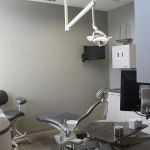Understanding Common Dental Problems in Older Adults
As we age, our bodies go through various changes, and one area that often gets overlooked is oral health. Over the years, I’ve seen firsthand how dental issues can affect older adults. From my own experience and conversations with family members and friends, I’ve learned that dental problems in seniors are more common than many might think. In this article, I’ll share some of the most frequent dental problems that affect older adults and how you can address them to maintain optimal oral health.
1. Dry Mouth (Xerostomia)
Dry mouth, or xerostomia, is one of the most common dental issues older adults face. I first encountered this problem when my grandmother began complaining about her mouth feeling constantly dry, which made it difficult for her to speak or eat comfortably. Dry mouth occurs when there is a reduction in saliva production, and it can lead to various complications, including bad breath, tooth decay, and gum disease.
As we age, the production of saliva tends to decrease naturally, and certain medications commonly prescribed to older adults, such as antihistamines, blood pressure medications, and antidepressants, can worsen the condition. What I’ve found is that staying hydrated throughout the day and using saliva substitutes can help alleviate some of the discomfort. Additionally, chewing sugar-free gum and avoiding caffeine and alcohol can promote saliva production. For more severe cases, a dentist may recommend specialized treatments or oral moisturizers.
2. Gum Disease (Periodontal Disease)
Gum disease is another prevalent dental issue for older adults. I remember my father’s struggle with gingivitis and later, periodontal disease, which became more apparent as he aged. Gum disease occurs when the tissues around the teeth become inflamed, usually due to plaque buildup. If left untreated, it can lead to tooth loss and other serious complications.
Fortunately, gum disease is preventable and treatable with good oral hygiene. Brushing twice a day with fluoride toothpaste and flossing regularly are essential steps in preventing gum disease. However, I’ve found that older adults may struggle with flossing due to arthritis or other health issues. In these cases, alternatives like floss picks or interdental brushes can be very helpful. Regular visits to the dentist for cleanings and check-ups are also crucial to catch gum disease in its early stages.
3. Tooth Sensitivity
Tooth sensitivity is a common complaint among older adults, and I first noticed this issue with my own teeth as I got older. Sensitivity can occur when the protective enamel on the teeth wears down, or when gums recede, exposing the sensitive root surfaces. I remember when I started experiencing discomfort while drinking cold beverages or eating hot food, and it was not just an inconvenience—it became painful.
Tooth sensitivity can be triggered by a variety of factors, such as tooth decay, gum recession, or even acidic foods. Using toothpaste specifically designed for sensitive teeth, along with avoiding overly hot or cold foods, can provide relief. I’ve also found that using a soft-bristled toothbrush and avoiding excessive brushing pressure can help protect the enamel and reduce sensitivity over time. If sensitivity persists, it’s a good idea to consult with a dentist for further treatment options, such as fluoride applications or dental sealants.
4. Tooth Loss
Tooth loss is a concern that many older adults face, and it can significantly impact their quality of life. I’ve seen how the loss of teeth can affect not only a person’s ability to chew but also their confidence and self-esteem. The main causes of tooth loss in seniors are tooth decay, gum disease, and injuries. Poor oral hygiene and untreated dental conditions can lead to weakened teeth, making them more susceptible to falling out.
In my experience, dental implants and dentures are the most common solutions to tooth loss. Implants are a long-lasting and effective option for those who have lost a tooth, while dentures are a more affordable alternative for those who have lost several or all of their teeth. I’ve seen that many older adults feel much more confident after receiving dental implants or dentures, as they restore the function and appearance of their smile. It's essential to consult with a dentist to determine the best treatment plan based on individual needs.
5. Oral Cancer
Oral cancer is a serious health concern, and its risk increases with age. I became aware of this when a close family friend was diagnosed with oral cancer, and I realized how important it is for older adults to be vigilant about oral health. Oral cancer can affect the lips, tongue, cheeks, and other areas of the mouth, and early detection is key to successful treatment.
Regular dental check-ups are vital for detecting oral cancer in its early stages. Dentists are trained to recognize signs of oral cancer during routine exams, which is why I always encourage older adults to maintain regular dental visits. Additionally, avoiding tobacco products and limiting alcohol consumption can reduce the risk of oral cancer. If you notice any unusual lumps, sores, or persistent pain in the mouth, it’s important to see a dentist or healthcare provider as soon as possible.
6. Denture Care and Maintenance
For older adults who wear dentures, proper care and maintenance are essential to ensure comfort and functionality. I’ve seen family members struggle with poorly fitting dentures, which can cause irritation, pain, and difficulty eating or speaking. Over time, dentures may become loose or damaged, and it’s important to have them adjusted or replaced by a dentist as needed.
Cleaning dentures regularly with a soft brush and non-abrasive cleaner is essential to prevent plaque buildup and staining. Additionally, I’ve found that soaking dentures overnight in a cleaning solution can help keep them fresh and free of bacteria. If dentures don’t fit properly or cause discomfort, it’s important to consult with a dentist to ensure they are well-adjusted and functional. There are also dental adhesives available to improve the fit of dentures and help with comfort.
How to Prevent Dental Problems in Older Adults
Maintaining good oral health as we age requires diligence, but it’s possible to prevent or manage many of these common dental problems. Here are a few tips that I’ve found to be helpful:
- Brush your teeth twice a day with fluoride toothpaste and floss daily to maintain healthy teeth and gums.
- Stay hydrated and use saliva substitutes to combat dry mouth.
- Visit your dentist regularly for check-ups and cleanings to detect and treat issues early.
- Eat a balanced diet, avoiding excessive sugar and acidic foods that can damage teeth.
- If you wear dentures, ensure they fit properly and clean them regularly to avoid discomfort and oral health problems.







 Dr. David S. McGee, DMD5.0 (10 review)
Dr. David S. McGee, DMD5.0 (10 review) Dr. David Scharf - Long Island Periodontist & Dental Implants4.0 (234 review)
Dr. David Scharf - Long Island Periodontist & Dental Implants4.0 (234 review) Harbor Cove Dental5.0 (191 review)
Harbor Cove Dental5.0 (191 review) Perth Amboy Pediatric Dentistry & Orthodontics4.0 (455 review)
Perth Amboy Pediatric Dentistry & Orthodontics4.0 (455 review) All Star Dental Clinic4.0 (322 review)
All Star Dental Clinic4.0 (322 review) Coker Dental: Dr. William L. Coker, DDS4.0 (25 review)
Coker Dental: Dr. William L. Coker, DDS4.0 (25 review) The Importance of Oral Health Education During Pregnancy for a Healthy Pregnancy
The Importance of Oral Health Education During Pregnancy for a Healthy Pregnancy Best Tips for Brushing Your Teeth Properly for Healthy Gums: Essential Techniques for Oral Health
Best Tips for Brushing Your Teeth Properly for Healthy Gums: Essential Techniques for Oral Health Why Skipping Dental Checkups Can Lead to Bigger Oral Health Problems
Why Skipping Dental Checkups Can Lead to Bigger Oral Health Problems Advantages of Porcelain Dental Restorations
Advantages of Porcelain Dental Restorations How Can Diabetes Cause Tooth and Gum Problems? Preventing and Managing Oral Health Issues
How Can Diabetes Cause Tooth and Gum Problems? Preventing and Managing Oral Health Issues Healthy Habits for Promoting Good Oral Health and Hygiene: Tips for a Healthy Smile
Healthy Habits for Promoting Good Oral Health and Hygiene: Tips for a Healthy Smile